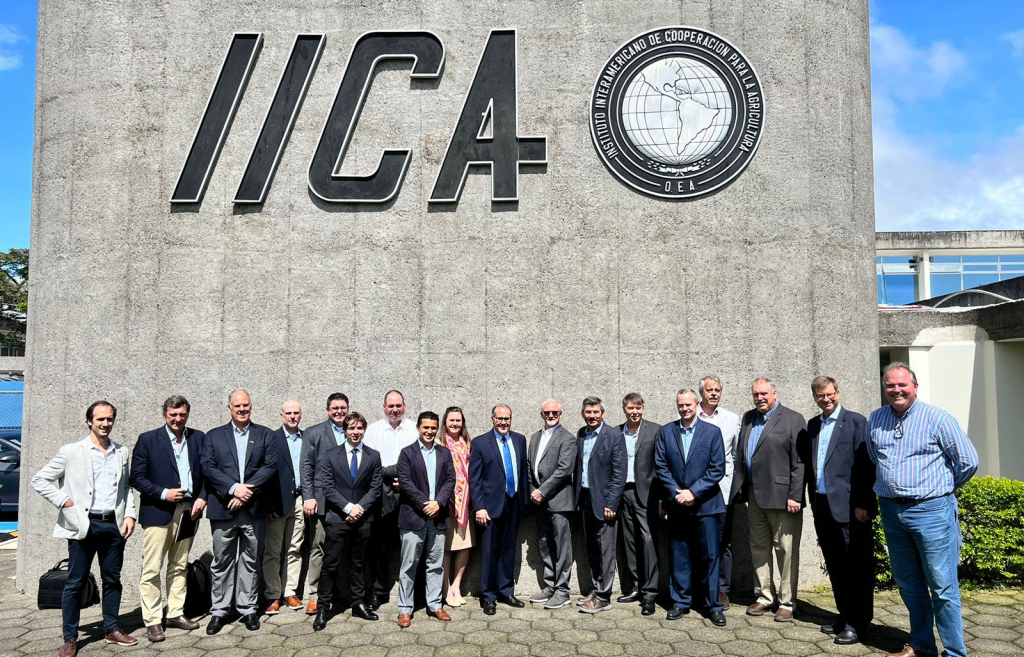Last week, the U.S. Grains Council (USGC) staff joined a MAIZALL mission to Costa Rica and Panama to meet with government officials and influential private sector groups and assuage concerns about the import of genetically modified (GM) corn from the United States. The delegation was led by MAIZALL President John Linder and included the eight other MAIZALL directors.
MAIZALL is a coalition of corn farming organizations from Argentina, Brazil and the United States that seeks to use its expertise and detailed data to advocate for innovations in agricultural production that can increase yields while using fewer precious resources such as water and land. MAIZALL members account for 50 percent of the world’s corn production and 70 percent of its exportable surplus.
In Costa Rica, the delegation met with the Ministries of Agriculture and Economy, the Animal Feed and Health Service (SENASA) and other crucial organizations in the supply chain. A draft regulation, that could potentially create certain obstacles to the import of GM corn, received some impetus earlier this year following an ombudsman inquiry, and during the meetings, MAIZALL presented information on the prevalence of GM corn in the global market and the many benefits of GM corn cultivation in MAIZALL member countries. The delegation came away from the meetings reassured the data was well received, and that the legislation is unlikely to move forward.
The delegation also visited the headquarters of the Inter-American Institute for Cooperation on Agriculture (IICA) in Costa Rica to explore further collaboration opportunities with MAIZALL. Additionally, group leaders met with CropLife to better understand other potential regulatory challenges elsewhere in Latin America (LTA) and develop strategies to combat misinformation about GM crops.
In Panama, the team met with local U.S. Department of Agriculture (USDA) staff and U.S. Ambassador to Brazil Elizabeth Frawley Bagley. They also had a productive meeting with a leading agricultural and food company regarding the current state of biotechnology use and regulation in Panama.
Panama and Costa Rica are two of many countries that depend on GM corn imports to feed their populations and the Council and its allied organizations will continue working to ensure no barriers are implemented that would damage agricultural trade in the LTA region and beyond.
“The work of MAIZALL continues to be very important as we strive to strengthen acceptance of modern agricultural production practices throughout the world,” said Andrew Brandt, USGC Director of Trade Policy. “Visiting with organizations like IICA allows MAIZALL to ensure its resources and efforts are being properly allocated throughout the world.”
Learn more about MAIZALL here.
About The U.S. Grains Council
The U.S. Grains Council develops export markets for U.S. barley, corn, sorghum and related products including distiller’s dried grains with solubles (DDGS) and ethanol. With full-time presence in 28 locations, the Council operates programs in more than 50 countries and the European Union. The Council believes exports are vital to global economic development and to U.S. agriculture’s profitability. Detailed information about the Council and its programs is online at www.grains.org.

